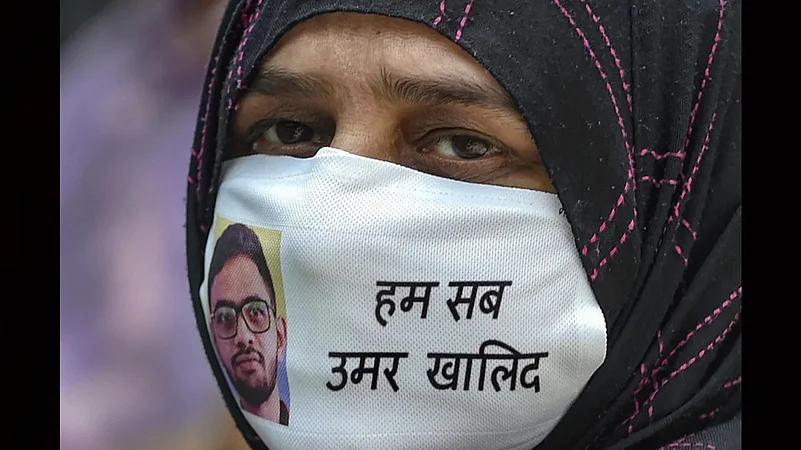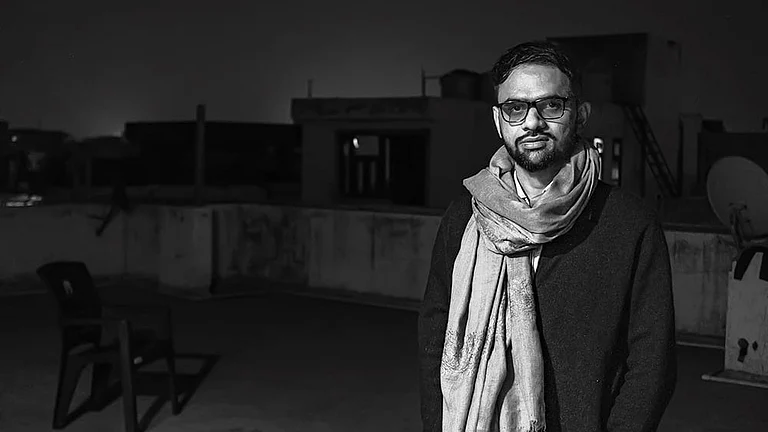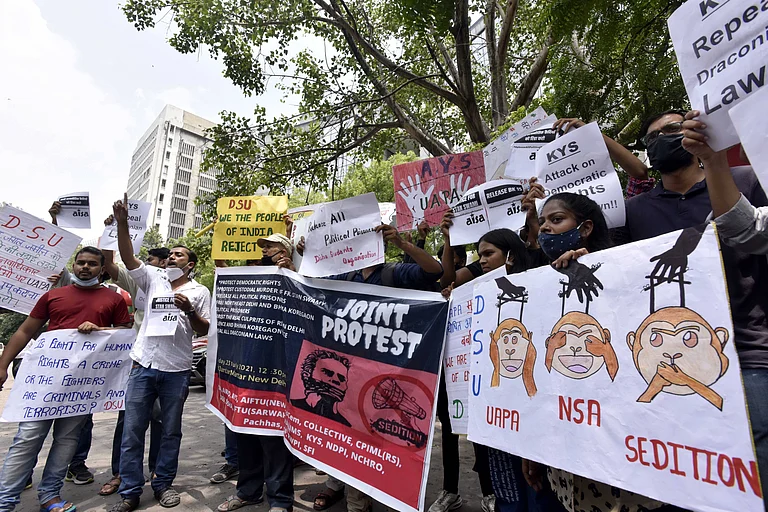
Banojyotsa Lahiri tells PTI that they will now involve the Supreme Court in Delhi Riots case.
JNUSU announces solidarity march on September 13 to mark five years since Khalid’s arrest.
JNUSU President alleges deliberate targeting of student activists.
Umar Khalid’s partner Banojyotsna Lahiri told PTI on Tuesday that his legal team would now move the Supreme Court as a last resort, after the Delhi High Court rejected his bail plea along with those of Sharjeel Imam and several others accused in the 2020 Delhi violence 'conspiracy case'.
Khalid and eight others have been in jail since September 2020 in one of the cases linked to northeast Delhi, where violence broke out during the anti-Citizenship (Amendment) Act, 2019 and anti-National Register of Citizens (NRC) protests. Fifty-three people died and over 700 were injured in the violence.
Khalid and others were booked under the stringent Unlawful Activities (Prevention) Act for their alleged role in orchestrating the violence. Khalid was granted interim bail for a week in December 2022, and for a similar duration in December 2024. In February 2024, he withdrew his bail plea from the Supreme Court, citing “change in circumstances” and saying they will try their luck in trial court.
Today’s High Court decision upheld a trial court’s order, where the prosecution had argued that the violence was caused by a “well-thought-out conspiracy”. Delhi Police had opposed the bail pleas, contending that the speeches delivered by the accused had a 'common thread of references'.
Lahiri told PTI that holding someone in jail for five years without trial in itself constitutes ground for bail. She said the reason for the denial of bail is not known to them, and added that “as citizens we only look upto the courts for justice.”
The Jawaharlal Nehru University Students’ Union has announced a solidarity march on September 13 to commemorate five years since Khalid’s arrest. JNUSU president Nitish Kumar claimed a pattern in bail denials for people who protest against the administration, particularly student activists, while the primary perpetrators of the violence “roam free and are given high regard”.
(With PTI inputs)



























